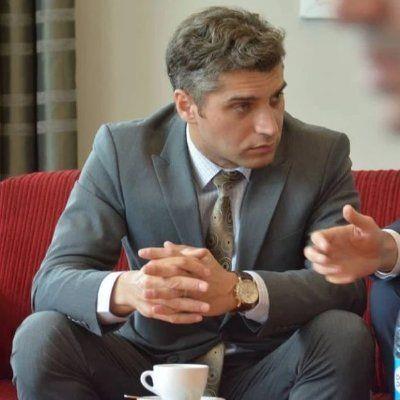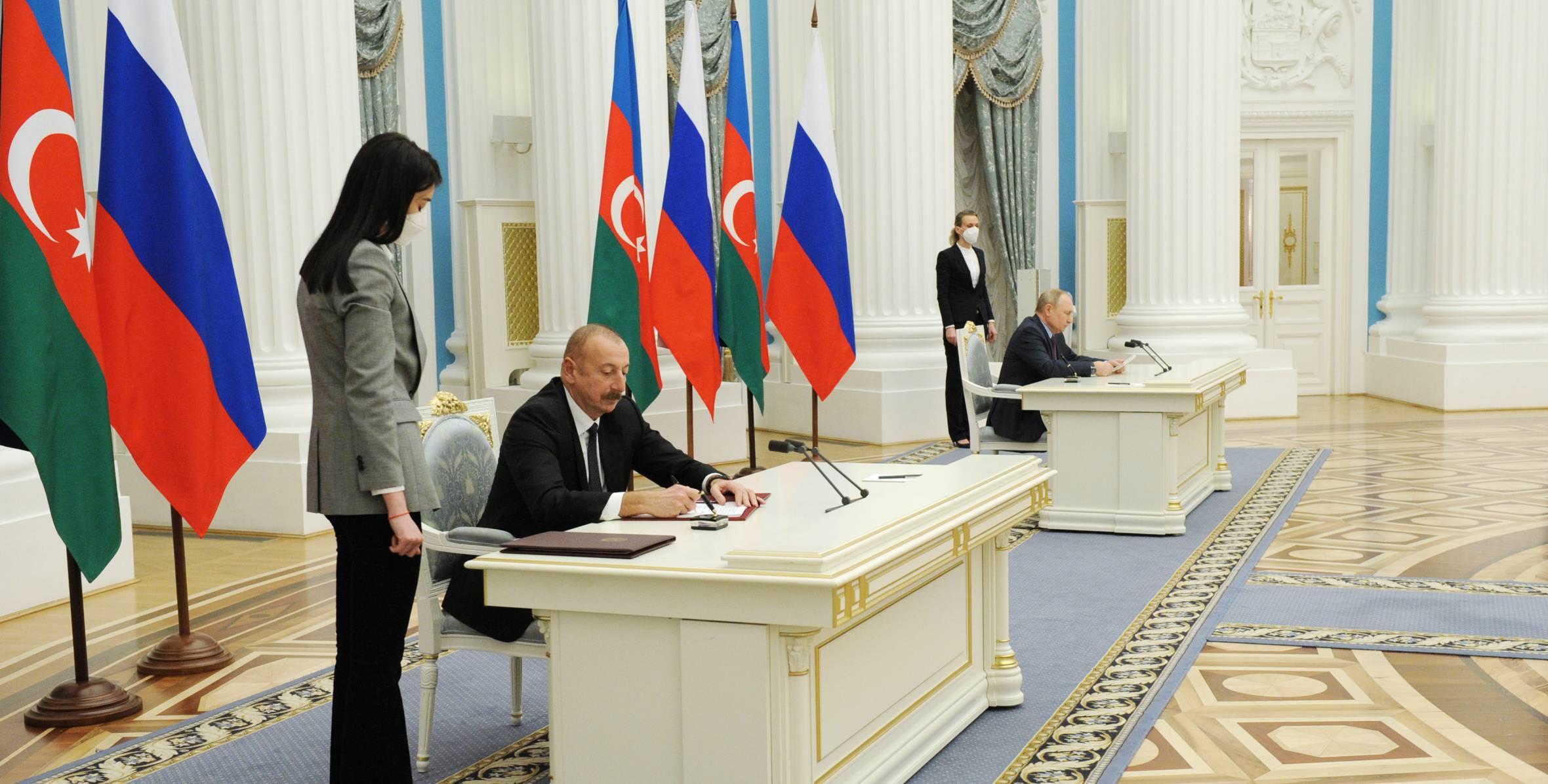(MENAFN- AzerNews)

Elnur Enveroglu Read more
Russian-Azerbaijani relations can be presented as one of themost exemplary cooperations in the CIS today. diplomatic relationsbetween the two countries were established on April 4, 1992,following the collapse of the USSR. In the same year, the RussianEmbassy in Baku officially opened.
The main document forming the contractual and legal basis ofbilateral relations is the Treaty on Friendship, Cooperation, andMutual Security signed between the Russian Federation and theRepublic of Azerbaijan on July 3, 1997.
However, since the 1990s, the occupation of Azerbaijaniterritories by Armenia has changed the geopolitical processessomewhat differently. Armenia, which mostly took refuge in Russia'ssupport, began to pursue the policy of expansion in the Garabaghterritories of Azerbaijan by using these opportunities fordifferent purposes.
The Republic of Azerbaijan was not very strong economically atthat time, but the national leader Heydar Aliyev, who ledAzerbaijan at that time, had an influence in diplomacy that wassuperior to the leaders of Armenia and was even distinguished byhis political gravity in the region. Nevertheless, economicopportunities did not allow Azerbaijan to demonstrate itsdetermination on the Garabagh issue. Time was needed for this.
2020 was a turning point for Azerbaijan. A firm push was neededto start a new era. In addition to being unaware of the increase inAzerbaijan's potential, Armenia's eagerness to continue itsexpansionist policy in the region led to the emergence of newgeopolitical realities in the South Caucasus.
Armenia, which was defeated both during the war and in thepost-war processes, thought that Russia was still defending themand would "occupy" the Azerbaijani lands and "return" them toArmenia. Not only Armenia, but even many opposing forces andWestern forces thought about this.

On February 22, 2022, when Russia and Azerbaijan signed adeclaration on allied interaction, many thought that it was justwords on paper. However, this approval was an agreement that madeAzerbaijan and Russia strong and inseparable allies and led tocontinuous development.
On October 13, 2022, Azerbaijani President Ilham Aliyev, duringthe meeting with Russian President Vladimir Putin in Astana, alsonoted that the relations between Azerbaijan and Russia "havereached the highest level - the level of mutual activity ofallies".
Currently, the legal framework between the two countriesincludes about 200 interstate, intergovernmental, and interregionalagreements.
The working mechanism regulating the resolution of specificissues of bilateral relations between the Russian Federation andthe Republic of Azerbaijan at the state level is theIntergovernmental Commission on Economic Cooperation.
Further to Azerbaijan-Russia relations, a working group onAzerbaijan-Russia interparliamentary relations operates in theMilli Mejlis of the Republic of Azerbaijan, which was establishedon March 7, 1997.
According to the Agreement "On cooperation between the MilliMejlis of the Republic of Azerbaijan and the Federal Assembly ofthe Russian Federation" signed on April 16, 2001, theInter-Parliamentary Commission on the cooperation of the Republicof Azerbaijan and the Russian Federation was established. Itsworking rules are defined by the Regulation approved on October 21,2004.
Thus, the ongoing alliance between Azerbaijan and Russia finallycreated conditions for the restoration of complete security inGarabagh. This alliance, which seemed to many to be a myth and wastreated with suspicion, finally showed itself recently. Russia'speacekeeping troops deployed to the territories of Azerbaijan in2020 have completed their mission and decided to leave the countryahead of time. In fact, this decision is logical. Because the taskof the peacekeeping mission was only to prevent the threat ofArmenian separatism, this became possible. Since there are no moreseparatist elements in Garabagh, it can be argued that thepeacekeeping troops must return to their countries.
Here, one point was clearly reflected in its truest form: thepolitical step taken by Armenia against Russia in return for whatit got from Russia in 30 years. Armenia decided to sever its tieswith Russia by moving completely towards the West. This radicalposition completely undermined Moscow's trust in Yerevan. However,according to the document, both the borders and the airspace ofArmenia are under the control of Russia, and the fact that the Westuses the loophole and intervenes does not give it any reason tohave a say in the South Caucasus. Although the West takes theposition of just using Armenia as a springboard and conducting itsown politics in the South Caucasus, Armenia still imagines the Westas its new saviour and submits to its financial assistance, this greed of Armenia is a potential threat to the fate ofthe region in the future. Western powers have never provided helpwithout a purpose, and certainly the plans for the South Caucasusare not limited to Russia but are also the basis of the steps takenagainst Azerbaijan and Turkiye.
MENAFN18042024000195011045ID1108110085
Legal Disclaimer:
MENAFN provides the information “as is” without warranty of any kind. We do not accept any responsibility or liability for the accuracy, content, images, videos, licenses, completeness, legality, or reliability of the information contained in this article. If you have any complaints or copyright issues related to this article, kindly contact the provider above.